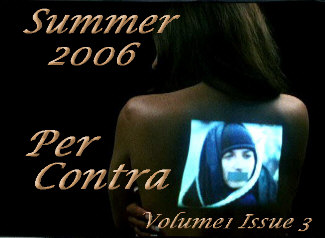
Autumn in Zimbabwe by Wadzanai Mhute
In the rainy season, the streets surrounding Duncan Preparatory school were filled with Jacaranda trees that bloomed purple flowers. The year was 1989. Simadi was eleven years old and slim again, she didn't know how. Her mom said it was just her age.
She had gained weight the previous year and hadn't been allowed to play in the netball tournament because she weighed over the stipulated 50kg (she'd made the mistake of wearing her takkies on the scale, which added extra kilos). Simadi had also lost the under 12 girl's high-jump competition and came second in the 100m sprint. Her weight had been a liability that year. But now she was slim again.
1989, Grade Six, was Simadi's year to regain the sprint and high jump crown. It was also the year she started to hunch over. She glanced over at Farah, sitting with her back hunched and leaning slightly forward to see the blackboard. She imitated the posture.
Don't ask why. Maybe it had to do with the fact that Farah was new at Duncan Preparatory School and receiving the bulk of the boys' attention; or maybe it was because Simadi had grown some inches and the new slimness made her look even taller. Naturally, at that age all the boys were shorter than the girls. Simadi, unfortunately, was the tallest girl; moreover, she was only one of three black girls in the grade six class so was teased regularly. Her hunched appearance came into being.
She loved the four sports fields because she played every sport. Field hockey, netball. You name it, she excelled at it. Running on those fields gave her a sense of freedom.
1989 was also the year Simadi chased a boy in her class around the fields because he said he could beat her up. Simon ran the length of the hockey field. Simadi ran after him and when she finally caught up slightly out of breath, she clipped him one on the ear. What she didn't expect was his coming after her at the end of school and hitting her lightly on her hand then running into his mother's waiting car. Simadi was not pleased. She had to return the favor and restore her friends' confidence in her ability to fight boys.
She arrived early the next morning so waited, still holding her satchel, behind a tree that overlooked the car park. Simon stepped out of his mother's car, oblivious to what lay before him. With a kiss and a wave his mother drove off leaving him to Simadi's mercy.
"Hi Simon," she said, stepping from behind her hiding place. She didn't wait for an answer nor for the look of panic to turn to comprehension.
"Aaaah," he screamed as she pushed him to the ground and tapped his head lightly. Then, laughing, she ran into the safety of the classroom where Mrs Thistlebrook was waiting without humor for the class to settle down.
Simon walked in with tomato red cheeks, glaring towards Simadi. Ten o'clock break time, he ran after her and slapped her hand in a friendly way. This chasing and tapping continued for weeks until everyone started looking at them.
"What's going on? Do you like Simon?" Musa, Simadi's friend who was also black, asked her.
"No way!" Simadi said, partly because he was white and in post-independent, still racist Zimbabwe, whites and blacks didn't like each other that way; and partly because she didn't want her friend to know she wasn't that tough after all.
Without discussing it Simadi and Simon knew the friendship was doomed to end. The quiet glances and exclusions from ten o'clock break games were too high a price to pay. Each was accepted individually; together they represented a side to Zimbabwe that was not to be encouraged. The chases became routine. Neither wanted to stop and neither wanted to continue.
On an unseasonably nippy December morning, Simadi and Simon silently stood on the hockey fields while their classmates played soccer in the sunken field below and netball on the field to the left.
"Simadi, we need a goal defender," Musa yelled from the netball field. Simadi turned to Simon. His eyes were firmly fixed on the field below. He turned his head, meeting her inquiring eyes. She smiled weakly and said, "They need a defender."
"Yeah," he replied, "soccer needs a striker."
Without another word, they parted. A cold breeze drifted slowly and settled on the vacated field. The number of chases dwindled till they ceased altogether.
The rains stopped and the Jacaranda flowers turned brown and fell to the drying ground. 1990. A new year and that looked strangely similar to the previous one. Nothing had changed, or had it?